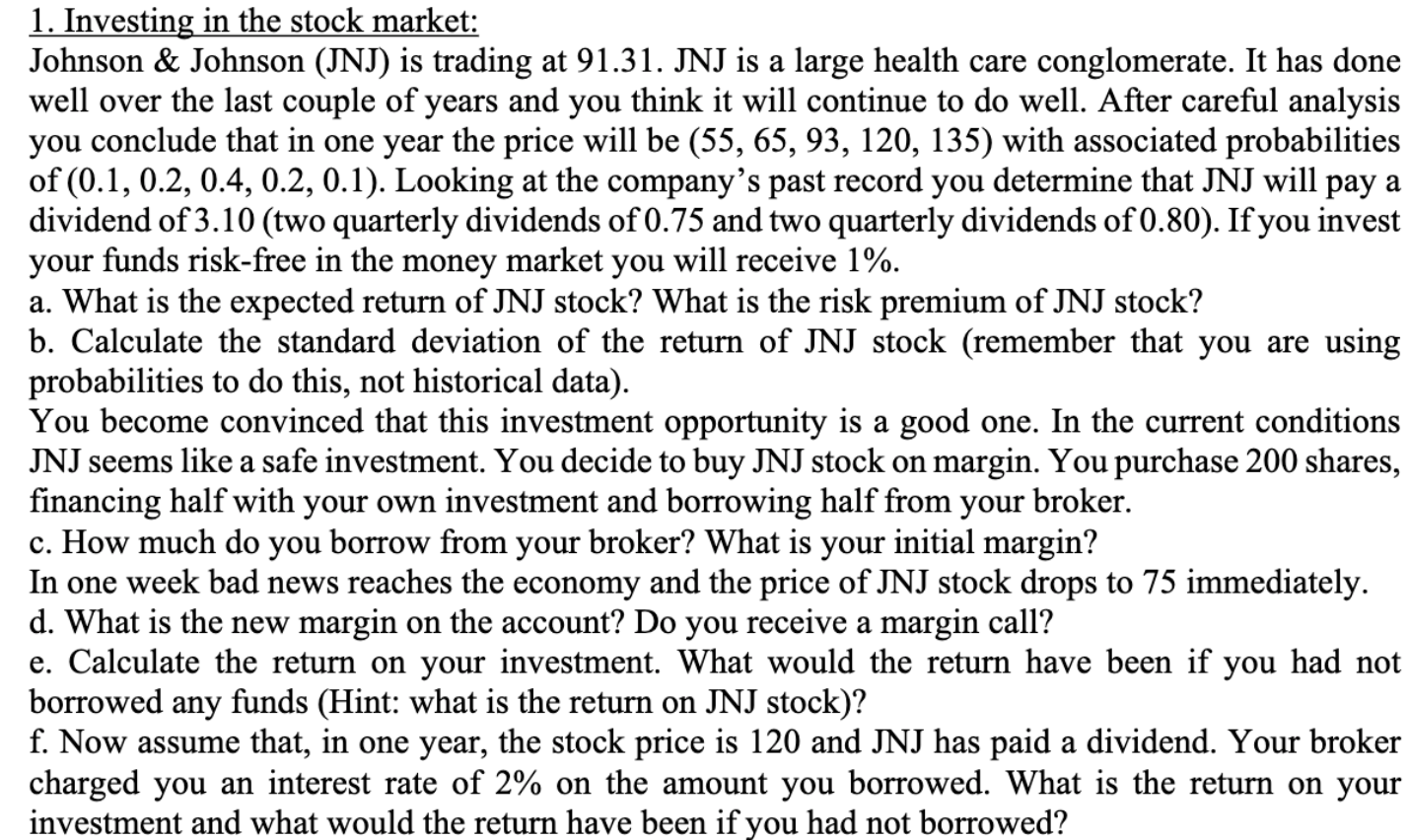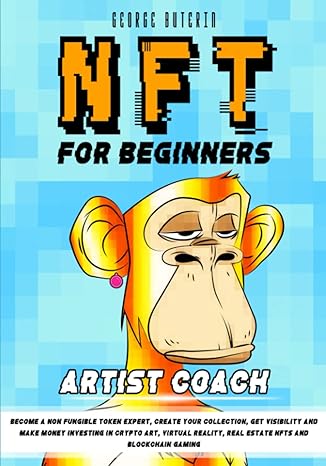
1. Investing in the stock market: Johnson & Johnson (JNJ) is trading at 91.31. JNJ is a large health care conglomerate. It has done well over the last couple of years and you think it will continue to do well. After careful analysis you conclude that in one year the price will be (55, 65, 93, 120, 135) with associated probabilities of (0.1, 0.2, 0.4, 0.2, 0.1). Looking at the company's past record you determine that JNJ will pay a dividend of 3.10 (two quarterly dividends of 0.75 and two quarterly dividends of 0.80). If you invest your funds risk-free in the money market you will receive 1%. a. What is the expected return of JNJ stock? What is the risk premium of JNJ stock? b. Calculate the standard deviation of the return of JNJ stock (remember that you are using probabilities to do this, not historical data). You become convinced that this investment opportunity is a good one. In the current conditions JNJ seems like a safe investment. You decide to buy JNJ stock on margin. You purchase 200 shares, financing half with your own investment and borrowing half from your broker. c. How much do you borrow from your broker? What is your initial margin? In one week bad news reaches the economy and the price of JNJ stock drops to 75 immediately. d. What is the new margin on the account? Do you receive a margin call? e. Calculate the return on your investment. What would the return have been if you had not borrowed any funds (Hint: what is the return on JNJ stock)? f. Now assume that, in one year, the stock price is 120 and JNJ has paid a dividend. Your broker charged you an interest rate of 2% on the amount you borrowed. What is the return on your investment and what would the return have been if you had not borrowed? 1. Investing in the stock market: Johnson & Johnson (JNJ) is trading at 91.31. JNJ is a large health care conglomerate. It has done well over the last couple of years and you think it will continue to do well. After careful analysis you conclude that in one year the price will be (55, 65, 93, 120, 135) with associated probabilities of (0.1, 0.2, 0.4, 0.2, 0.1). Looking at the company's past record you determine that JNJ will pay a dividend of 3.10 (two quarterly dividends of 0.75 and two quarterly dividends of 0.80). If you invest your funds risk-free in the money market you will receive 1%. a. What is the expected return of JNJ stock? What is the risk premium of JNJ stock? b. Calculate the standard deviation of the return of JNJ stock (remember that you are using probabilities to do this, not historical data). You become convinced that this investment opportunity is a good one. In the current conditions JNJ seems like a safe investment. You decide to buy JNJ stock on margin. You purchase 200 shares, financing half with your own investment and borrowing half from your broker. c. How much do you borrow from your broker? What is your initial margin? In one week bad news reaches the economy and the price of JNJ stock drops to 75 immediately. d. What is the new margin on the account? Do you receive a margin call? e. Calculate the return on your investment. What would the return have been if you had not borrowed any funds (Hint: what is the return on JNJ stock)? f. Now assume that, in one year, the stock price is 120 and JNJ has paid a dividend. Your broker charged you an interest rate of 2% on the amount you borrowed. What is the return on your investment and what would the return have been if you had not borrowed







